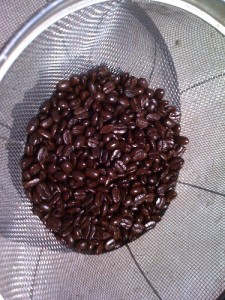Cottage food laws are made and passed by each individual state. Because of that, you have to check with each state to see what foods they include in their laws. Here is a list of some of the common foods that are approved of as non hazardous foods:
- baked goods (but with no cream or meat fillings)

- jams and jellies
- candy
- granola and other dry cereal
- popcorn,
- waffle cones
- pizzelles
- nut mixes
- chocolate covered non-perishables (such as nuts and dried fruit)
- roasted coffee
- dry baking mixes
- herb blends
- dried tea.
Depending on the state, that list will vary. If one of those is a specialty that you make, and your state has Cottage Food Laws in place, you may be a few steps away from starting your own business.
Your Health Department Can Tell You the Rules
You will have to check with your local health department. You may have to do things like get a food handlers card if required by the county, register with the home based baking program, follow the food safety rules such as cleaning and sanitizing preparation areas, not working where there are animals, keeping wiping clothes in a sanitary solution, follow proper hand washing procedures, separate ingredients for your business from your home use ingredients. You may have to follow zoning regulations and get insurance as well.
I know that sounds like a lot to do, but in comparison to having to make the investment in a commercial kitchen, it is actually pretty minimal. As you may know, I actually added a licensed commercial kitchen to my home, you can read about how I did that .Starting any business takes work, there will always be paperwork required. You will also have to check and find out your responsibilities to the state to collect and pay sales tax. Also, the income you earn will have to be reported when you file your taxes each year. I advise consulting a professional CPA to make sure you are setting up your books the right way. The last thing you want is a visit from Uncle Sam.











